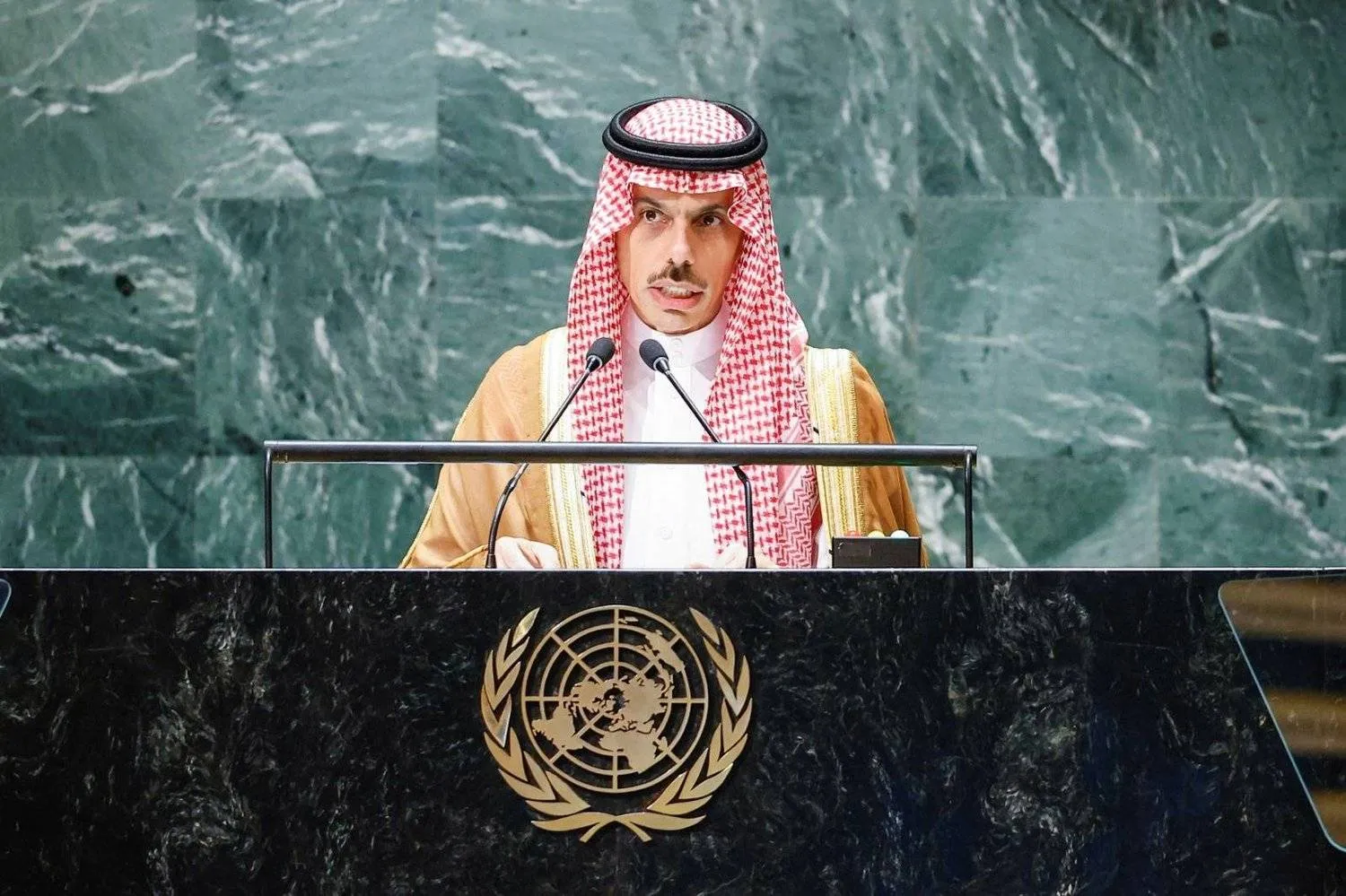Saudi Foreign Minister Faisal Bin Farhan asserted the necessity of states adhering to the UN Charter and the principles of international legitimacy, stressing that Saudi Arabia's Vision 2030 aims to enhance construction and development efforts to meet future generations' aspirations.
Speaking at the 78th session of the United Nations General Assembly (UNGA) in New York, bin Farhan delivered a speech on behalf of Custodian of the Two Holy Mosques King Salman bin Abdulaziz.
He expressed the Kingdom's aspirations for a better future for humanity, founded on mutual respect for the sovereignty and independence of states, their values, non-interference in their internal affairs, peaceful dispute resolution, and refraining from the use or threat of force.
Bin Farhan also highlighted how through its developmental approach, the Kingdom aims to create a comprehensive and sustainable renaissance, with its central focus and goal being the human being who will drive present development and shape the future through knowledge.
"The Kingdom places great importance on human rights, as its laws include explicit provisions aimed at promoting and protecting rights," Saudi Press Agency quoted the top diplomat as saying.
Moreover, he expressed the Kingdom's reaffirmation that the security of the Middle East region necessitates the expedited pursuit of a just and comprehensive solution to the Palestinian issue.
The Minister explained that the solution should be built upon the foundation of international legitimacy resolutions and the Arab Peace Initiative, guaranteeing the Palestinian people's right to establish their independent state based on the 1967 borders, with East Jerusalem as its capital.
"The Kingdom reiterated its rejection and condemnation of all unilateral actions, considered violations and blatant breaches of all international laws."
"These actions contribute to undermining regional and international peace efforts and hinder the paths of political solutions," he added.
Bin Farhan confirmed the Kingdom's keenness to support efforts of establishing security and stability, focusing on comprehensive development, making room for dialogue, calming and easing tensions, and urging countries in the region to avoid escalation.
He indicated that exchanging interests and benefits helps achieve the hopes and aspirations of the region's people.
The Kingdom worked to consolidate the principle of collective action to build a better future for the region and the World by hosting several joint regional summits within the framework of the Gulf Cooperation Council and the League of Arab States with the participation of all countries, including Syria, he said.
He renewed the Kingdom's call for removing weapons of mass destruction, noting that the international community must realize the importance of adhering to existing conventions and legal frameworks to arrive at a World free of nuclear weapons, especially in the Middle East.
The Foreign Minister also addressed climate change in his speech, noting that Saudi Arabia contributes to reducing emissions and supports the gradual and responsible transition towards clean, low-emission energy systems that use all sources to be more sustainable.
He indicated that the Kingdom announced the "Saudi Green" and "Middle East Green" initiatives to lead global efforts to protect the environment, reduce greenhouse gas emissions, enhance public health and quality of life, improve renewable energy, and achieve sustainable development.









